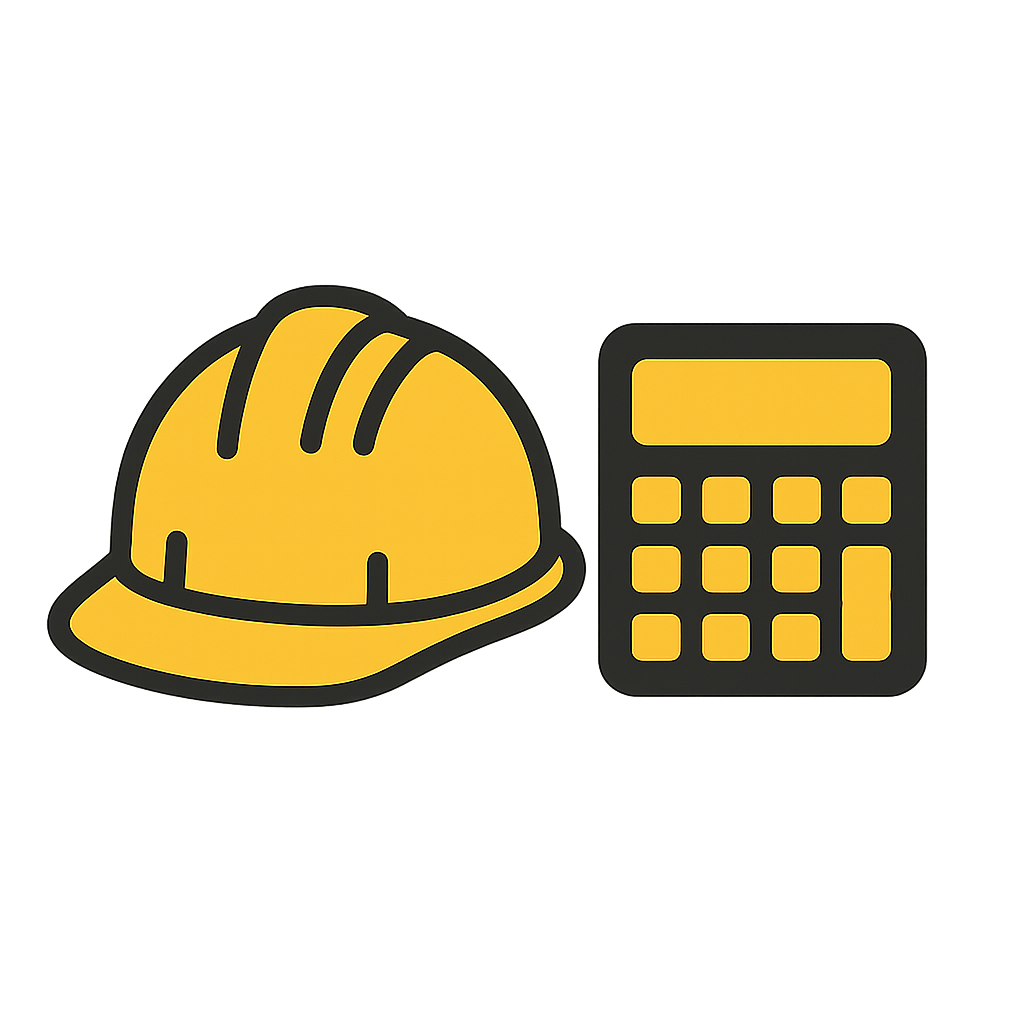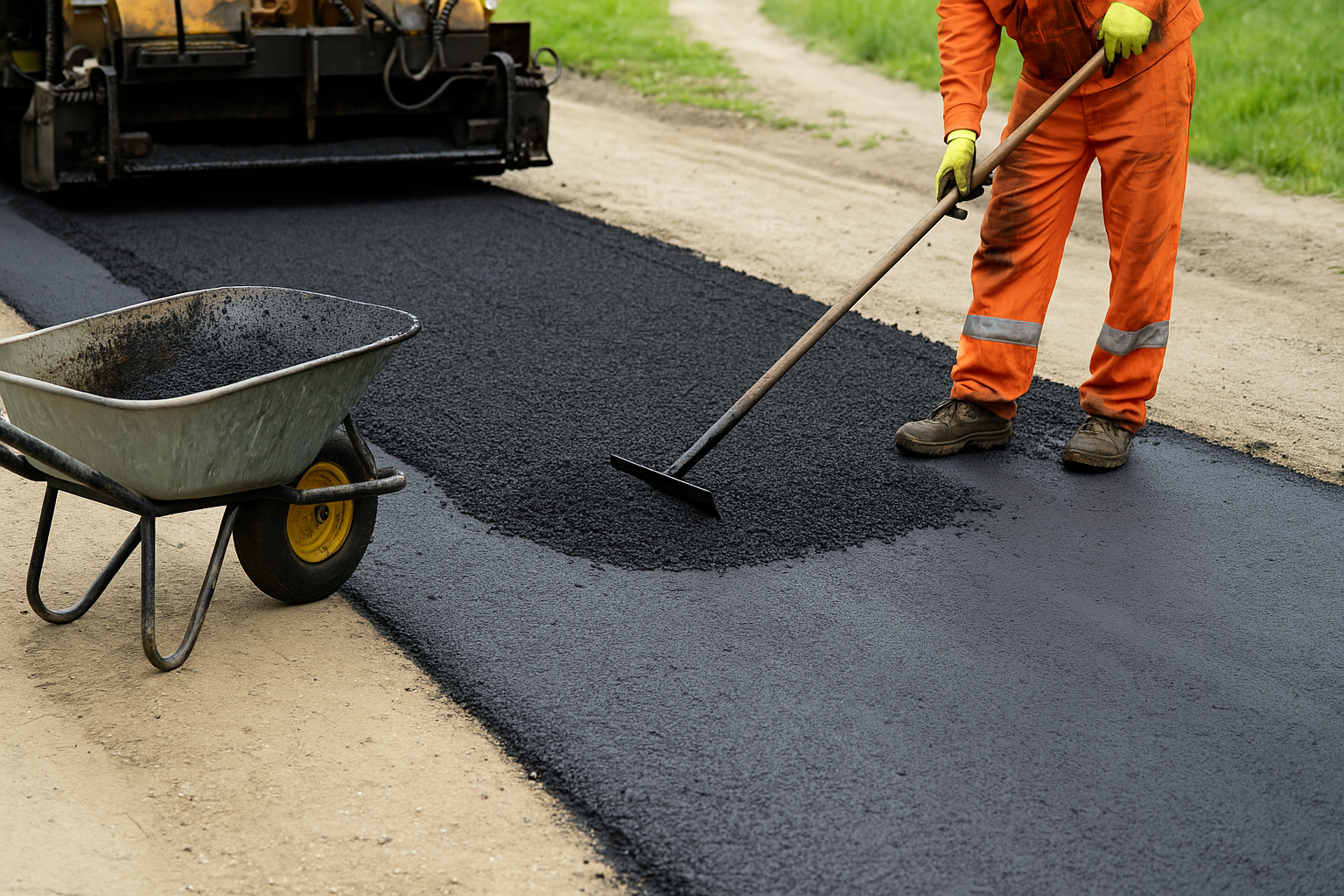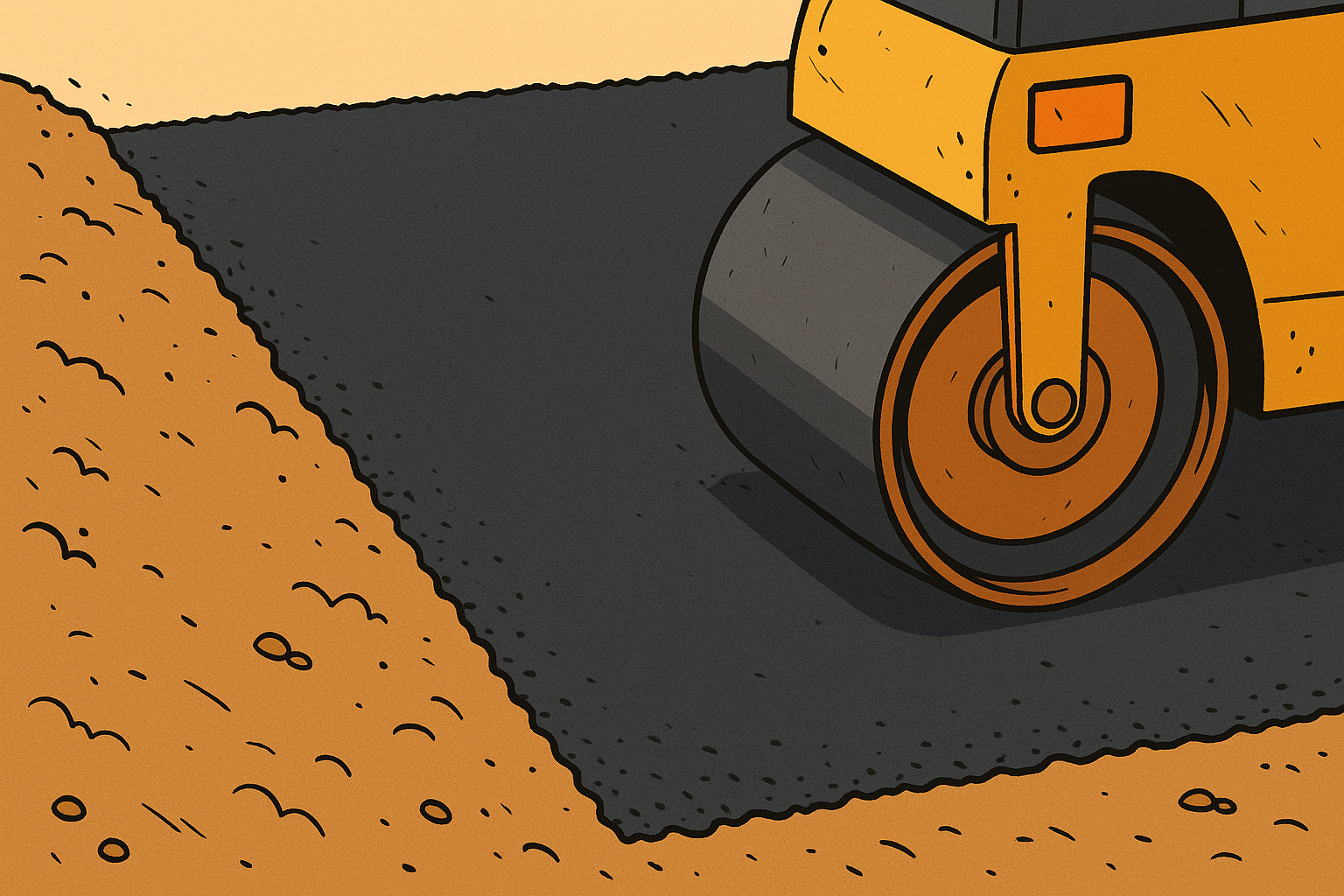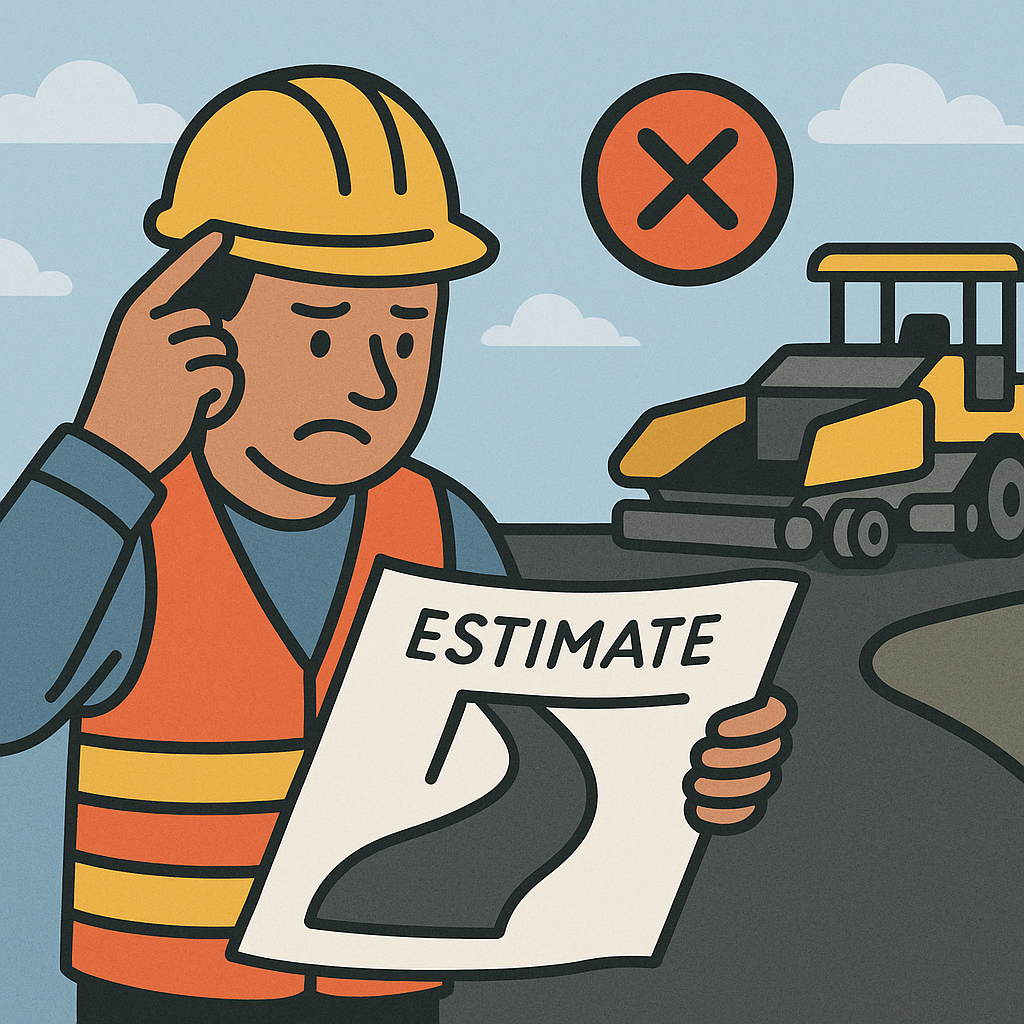Budget Planning
Estimate the Total Cost of Your Asphalt Project
Accurate cost estimation is the foundation of any successful paving project. Without a comprehensive budget, you risk unexpected expenses, compromised quality, or even an incomplete project. This guide walks you through the complete process of calculating all costs associated with your asphalt project, from materials and labor to equipment and site preparation, helping you plan with confidence and avoid financial surprises.
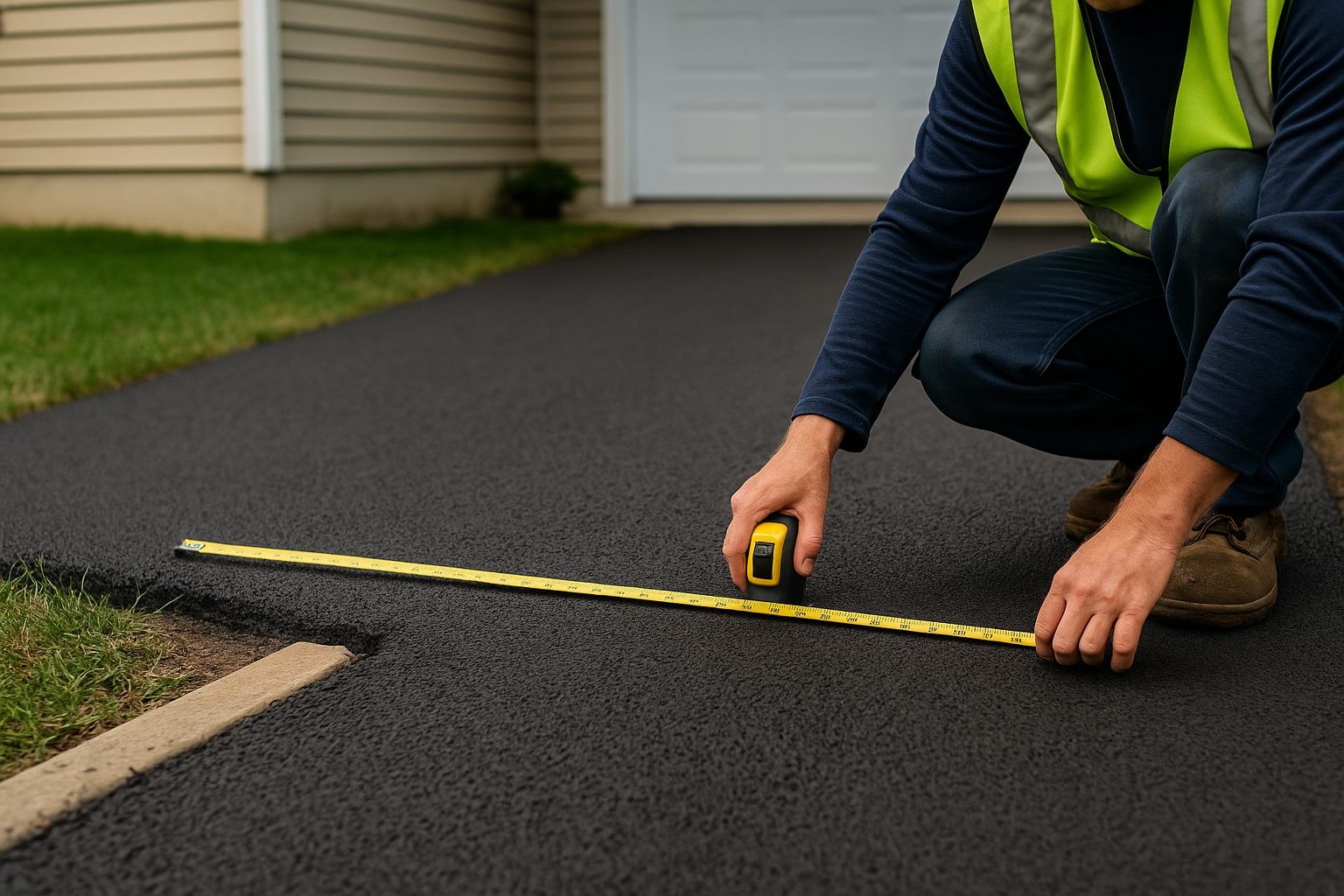
Understanding Total Project Costs
The cost of an asphalt project extends far beyond just the price of the asphalt itself. A comprehensive budget must account for multiple components:
Material Costs
- Asphalt: Typically $100-200 per ton, varying by region and quality
- Base materials: Crushed stone or gravel at $20-50 per ton
- Geotextile fabric: Optional stabilization layer at $0.30-0.75 per square foot
- Edge restraints: For certain applications at $2-5 per linear foot
- Sealants: For finishing at $0.15-0.25 per square foot
Labor Costs
- Site preparation: 15-25% of total project cost
- Base installation: 20-30% of total project cost
- Asphalt laying: 25-35% of total project cost
- Finishing and cleanup: 5-10% of total project cost
Labor costs vary significantly by region, project complexity, and contractor. For residential projects, labor typically accounts for 40-60% of the total project cost.
Additional Costs
- Equipment rental: Often built into labor costs but may be separate
- Delivery fees: $100-500 depending on distance from asphalt plant
- Permits: Varies by location, typically $50-500
- Site preparation: Excavation, drainage solutions, soil stabilization
- Removal of existing pavement: $1-3 per square foot if needed
Step-by-Step Cost Estimation Process
Follow this systematic approach to develop a comprehensive budget for your asphalt project:
Step 1: Calculate Material Requirements
Begin by determining exactly how much asphalt and base materials you'll need:
- Measure your project area in square feet
- Determine appropriate asphalt thickness for your application
- Use the asphalt calculator to convert these measurements to tons
- Calculate base material requirements (typically 1.5-2 times the asphalt thickness)
Example: For a 1,000 square foot driveway at 3 inches thick:
- Asphalt needed: Approximately 9.1 tons
- Base material needed: Approximately 18.2 tons (for 6-inch base)
Step 2: Research Current Material Pricing
Material costs fluctuate based on oil prices, location, and season. For accurate budgeting:
- Contact local asphalt suppliers for current per-ton pricing
- Get quotes from multiple suppliers to compare prices
- Ask about delivery fees and minimum order quantities
- Inquire about different asphalt mix options and their price differences
Example: At $120 per ton for asphalt and $30 per ton for base materials:
- Asphalt cost: 9.1 tons × $120 = $1,092
- Base material cost: 18.2 tons × $30 = $546
- Delivery fee: $200 (example)
- Total material cost: $1,838
Step 3: Estimate Labor and Equipment Costs
For DIY projects, calculate equipment rental costs. For professional installation:
- Get quotes from at least three reputable contractors
- Ensure quotes include all aspects of the job (prep, base, paving, cleanup)
- Ask about warranty coverage and what it includes
- Verify if permits are included in the quote
Example: For professional installation of our 1,000 square foot driveway:
- Labor and equipment: $2,500-$3,500 (varies by region and complexity)
- Permits: $150 (example)
- Total labor and equipment: $2,650-$3,650
Step 4: Account for Site-Specific Requirements
Every project has unique needs that can impact costs:
- Drainage solutions: $500-$2,000 depending on complexity
- Excavation of poor soil: $500-$1,500 if needed
- Removal of existing pavement: $1,000-$2,000 for a typical driveway
- Accessibility challenges: May add 10-20% to labor costs
Example: If our project requires basic drainage work:
- Drainage installation: $800
- Total site-specific costs: $800
Step 5: Calculate Total Project Cost
Add all components together and include a contingency buffer:
- Materials: $1,838
- Labor and equipment: $3,000 (midpoint of range)
- Site-specific costs: $800
- Subtotal: $5,638
- Contingency (10%): $564
- Total project budget: $6,202
This comprehensive approach ensures you've accounted for all potential costs and have a realistic budget for your project.
Cost-Saving Strategies
While quality shouldn't be compromised, there are legitimate ways to reduce costs:
- Schedule during off-peak seasons: Early spring or late fall may offer 10-15% discounts
- Combine with neighbors: Larger projects often receive better per-unit pricing
- Prepare the site yourself: Handling some prep work can reduce labor costs
- Consider recycled materials: Recycled asphalt products may offer savings
- Phased approach: For large projects, completing sections over time can help manage cash flow
Complete Cost Estimation Tools
Use these resources to develop a comprehensive and accurate budget:
- Start with the asphalt calculator to determine material quantities
- Learn about appropriate thickness in this depth guide
- Understand material pricing in this pricing guide
- Compare asphalt with alternatives using this comparison guide
- Avoid common estimation errors with this mistakes guide
By taking a comprehensive approach to cost estimation, you'll be well-prepared for your asphalt project. This detailed planning helps ensure you have adequate funding, can evaluate contractor quotes effectively, and avoid the stress of unexpected expenses. Remember that while initial cost is important, the true value of your asphalt project is determined by its longevity and performance over decades of use.
